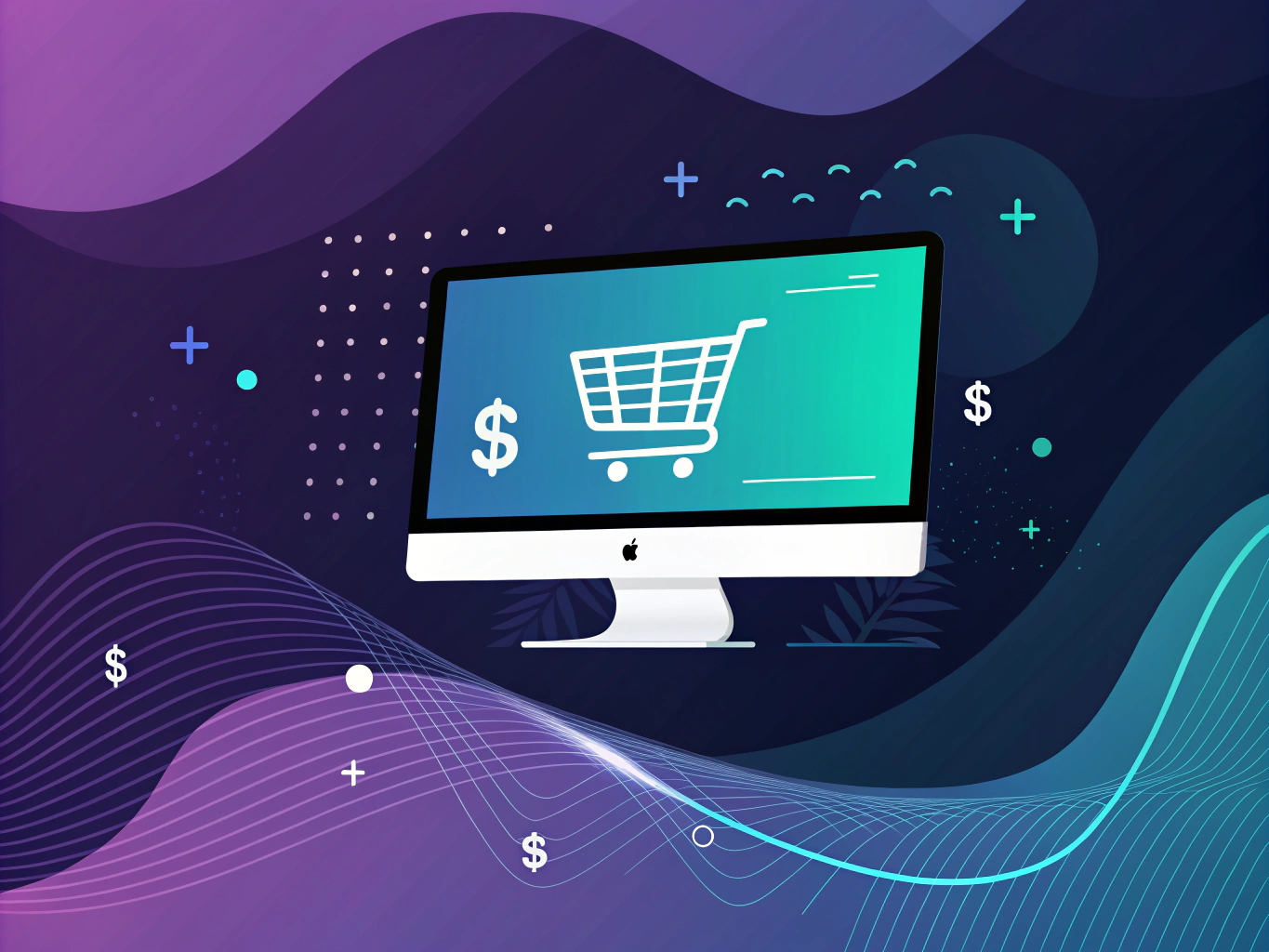Shopping on Shopify has revolutionized the way consumers discover and purchase products from independent merchants worldwide. Whether you’re new to the platform or looking to enhance your shopping experience, understanding how to shop on Shopify effectively can help you find unique products while supporting independent businesses. This comprehensive guide will walk you through everything you need to know about navigating the Shopify ecosystem.
Understanding the Shopify Ecosystem
What Shopify Is and Isn’t
Shopify serves as a powerful e-commerce platform that enables businesses to create and manage their online stores. Unlike Amazon or eBay, Shopify isn’t a marketplace where you browse multiple sellers in one place. Instead, each Shopify store operates independently, with its own unique website, branding, and shopping experience.
Many shoppers wonder “is shop and shopify the same?” While related, they’re distinct entities. Shopify is the platform merchants use to create their stores, while Shop is a consumer-facing app that helps you discover and buy from Shopify merchants, track orders, and manage purchases across different stores.
The Difference Between Shopify and Traditional Marketplaces
When comparing shop vs shopify or exploring how to buy on shopify, it’s essential to understand that shopping on Shopify differs from traditional marketplaces. Each store maintains its own inventory, pricing, and policies. This means you’ll need to create separate accounts for different stores and may encounter varying checkout experiences.
The platform provides merchants with tools to create unique shopping experiences, resulting in stores that range from minimalist boutiques to complex multi-category retailers. This diversity offers shoppers access to unique products and personalized experiences that often surpass traditional marketplace offerings.
Types of Stores You’ll Find on Shopify
Shopify hosts millions of merchants across various industries, including:
- Fashion and apparel retailers
- Handmade and artisanal products
- Digital products and services
- Home goods and furniture
- Beauty and wellness products
- Food and beverage vendors
- Electronics and gadgets
Getting Started with Shopify Shopping

Finding Shopify Stores
For those wondering how to shop on shopify, the first step is finding stores that interest you. Several methods can help you discover Shopify merchants:
Search Engine Methods
Use search engines to find specific products or types of stores. Many Shopify stores have excellent SEO, making them easily discoverable through Google searches. Include terms like “shop” or “store” along with your product keywords to find relevant results.
Social Media Discovery
Social platforms like Instagram, Pinterest, and Facebook frequently feature Shopify stores through organic posts and advertisements. These platforms often provide direct shopping links, making it easy to find and purchase products you discover while browsing.
Shop App Directory
The Shop app, Shopify’s consumer-facing application, offers a curated directory of stores. This app helps answer the question “how do i shop on shopify” by providing a centralized platform for discovering and purchasing from multiple Shopify merchants.
Navigating Individual Shopify Stores
Understanding how to navigate Shopify stores effectively enhances your shopping experience. Here are key elements to familiarize yourself with:
Store Layouts and Common Elements
Most Shopify stores share common navigation elements:
- Header menu with main categories
- Search bar for finding specific items
- Shopping cart icon
- Footer with additional information
- Product filtering options
Using Search and Filter Functions
Maximize your shopping efficiency by utilizing store search and filter functions. Most Shopify stores offer filtering by:
- Price range
- Product category
- Size and color options
- Availability
- New arrivals
- Sale items
Reading Product Descriptions Effectively
When learning how to buy from shopify stores, careful attention to product descriptions is crucial. Look for:
- Detailed specifications
- Size guides and measurements
- Material information
- Care instructions
- Shipping restrictions
- Return policies
Understanding Pricing and Shipping Information
Before making a purchase, familiarize yourself with the store’s pricing structure and shipping policies. Key considerations include:
- Currency display options
- Shipping rates and calculations
- International shipping availability
- Estimated delivery times
- Free shipping thresholds
Using Shopify’s Search and Filtering Tools
Shopping on Shopify stores is made easier with built-in search and filtering options. Here’s how to use them to find exactly what you need:
Search Bar
Most Shopify stores feature a search bar at the top of the page, allowing you to quickly type in keywords or product names. This tool helps you locate specific items without scrolling through entire categories.
Filters for Streamlined Shopping
Once you’ve entered a search, you can narrow down the results using filters. These may include options like:
- Product Categories: Shop by type, such as clothing, electronics, or home goods.
- Price Range: Set a minimum and maximum price to find items within your budget.
- Brand or Vendor: Filter products by your favorite brands or sellers for a more tailored selection.
These tools enhance your shopping experience by making it easier to find exactly what you’re looking for, saving time and effort.
The Shopify Shopping Experience
Before Making a Purchase
When shopping on Shopify stores, creating a customer account offers numerous benefits that enhance your shopping experience. These accounts allow you to track orders, save payment information, and quickly reorder items you love. Many stores offer exclusive discounts and early access to sales for registered customers.
Wishlisting capabilities vary between stores, but most Shopify merchants enable this feature to help you bookmark items for future purchases. You’ll typically find a heart icon or “Add to Wishlist” button near product images. This tool becomes particularly useful during sale seasons or when comparison shopping across different stores.
Customer reviews provide valuable insights into product quality and merchant reliability. Look for verified purchase badges and detailed feedback that includes photos or specific use cases. Pay attention to how merchants respond to both positive and negative reviews, as this indicates their commitment to customer service.
Adding Products to Cart
Selecting product variables requires careful attention to detail. Most Shopify stores use dropdown menus or swatch selectors for options like size, color, or style. Always verify your selections before adding items to cart, as some combinations may affect pricing or availability.
When managing your cart, take advantage of the quantity adjustment features. Many stores offer bulk pricing or shipping discounts for larger orders. The cart page usually displays a running total that includes any applicable taxes and estimated shipping costs based on your location.
Save for Later features help organize your shopping experience, especially when browsing multiple items. This tool differs from wishlisting as it typically maintains your selected variables and often shows real-time inventory updates for your saved items.
Checkout Process Deep Dive

Understanding Payment Options
Shopify’s checkout system offers two primary paths: standard checkout and Shop Pay. Standard checkout supports various payment methods including credit cards, PayPal, and local payment options. Shop Pay accelerates the process by saving your information for future purchases across any Shopify store.
Security measures during checkout include SSL encryption and PCI compliance. Look for the padlock icon in your browser’s address bar and verify that the checkout URL begins with “https://” for additional peace of mind.
Shipping Calculations and Options
Shipping options typically include standard, expedited, and sometimes free shipping thresholds. Many merchants offer real-time carrier rates that calculate based on your location and cart contents. International shoppers should pay special attention to delivery timeframes and any additional customs fees.
Tax calculations occur automatically based on your shipping address and local regulations. Some stores display duty estimates for international orders, helping you avoid surprise charges upon delivery. Always review these costs carefully before completing your purchase.
Using the Shop App
Maximizing App Features
The Shop app serves as your personal shopping assistant across all Shopify stores. It consolidates your order tracking, payment methods, and shopping history in one convenient location. The app’s discovery features help you find new stores based on your shopping preferences and location.
Product discovery within the app uses AI-powered recommendations to suggest items you might like. These suggestions improve over time as you interact with different stores and products. The local shopping feature helps you find nearby merchants who offer in-store pickup or local delivery options.
Advanced Shopping Features
Shop Pay installation streamlines your checkout experience across all participating stores. Once set up, you can complete purchases with a single click, using saved shipping and payment information. The system also supports digital wallet integration for added convenience.
Cross-store shopping becomes seamless with the Shop app’s unified cart feature. This allows you to purchase items from multiple stores in a single transaction, though shipping costs are calculated separately for each merchant.
Post-Purchase Experience
Managing Your Orders
Order tracking through the Shop app or individual store interfaces provides real-time updates on your purchases. The system typically sends email notifications at key stages: order confirmation, shipping confirmation, and delivery confirmation. Some merchants also offer SMS updates for additional convenience, often powered by bulk SMS software to streamline notifications at scale.
Documentation management is crucial for warranty claims or returns. The Shop app automatically archives your receipts and order details, making it easy to access this information when needed. Many stores also provide downloadable invoices through their customer portal.
Customer Support Channels
When issues arise, Shopify merchants offer various support channels including email, chat, and sometimes phone support. Response times and availability vary by store, but most maintain standard business hours for their primary time zone. Document any communication regarding order issues or disputes for future reference.
Understanding the distinction between Shopify support and merchant support is crucial. Shopify handles platform-related technical issues, while individual merchants manage product-specific questions and order fulfillment concerns. Direct your inquiries to the appropriate channel for faster resolution.
Shopping Safely on Shopify

Security Best Practices
Verify store credibility by checking customer reviews, social media presence, and contact information. Legitimate Shopify stores typically display clear policies, physical addresses, and responsive customer service channels. Be cautious of stores with limited history or suspicious pricing patterns.
Data protection measures include encrypted checkout pages and secure payment processing. Shopify’s platform automatically implements these security features, but you should still maintain good password hygiene and avoid saving payment information on unfamiliar stores.
Fraud Prevention Tips
Watch for trust indicators such as SSL certificates, secure payment badges, and verified merchant status. The Shop app provides additional verification by highlighting established stores and tracking merchant performance metrics.
Review store policies carefully before making purchases, particularly shipping, return, and refund terms. Screenshot or save important policy pages in case of future disputes. Many reputable stores offer buyer protection or satisfaction guarantees.
International Shopping Considerations
Currency and Payment Options
Shopify’s platform supports multiple currencies, allowing you to view prices in your local currency. However, final charges may vary based on exchange rates and payment processor fees. Some stores offer fixed currency conversion rates to provide more predictable pricing.
International shipping options vary significantly between merchants. Consider factors like delivery timeframes, tracking availability, and insurance coverage. Many stores partner with global carriers to provide reliable international shipping services.
Understanding Import Regulations
Customs duties and import taxes depend on your location and purchase value. While some stores pre-calculate these fees, others leave the responsibility to the buyer. Research your country’s import regulations to avoid unexpected charges or delivery delays.
Language options on Shopify stores may include automatic translation features. While helpful, verify important details like sizing charts and product specifications in their original language when possible to ensure accuracy.
Post-Purchase Experience on Shopify
Once you’ve completed your purchase on Shopify, managing your orders and accessing customer support becomes crucial for a smooth shopping experience. Let’s explore how to handle these post-purchase aspects effectively and make the most of Shopify’s built-in features.
Managing Your Orders
Tracking orders on Shopify is straightforward through your customer account dashboard. You’ll receive automatic email updates about your order status, including shipping notifications and delivery estimates. Most Shopify stores provide detailed tracking information that lets you monitor your package’s journey in real-time.
When managing multiple purchases, organize your orders by:
- Creating a dedicated folder in your email for order confirmations
- Saving tracking numbers in a convenient location
- Taking screenshots of order confirmations for backup
- Maintaining digital copies of receipts for warranty purposes
Understanding Return Processes
Return policies vary by merchant, but most Shopify stores follow a standard process. Start by reviewing the store’s return policy, typically found in the footer menu. Document any issues with photos if necessary, and contact the merchant through their preferred channel, whether email, chat, or a dedicated returns portal.
Shopping Safely on Shopify: Security Best Practices

Security should be your top priority when learning how to shop on Shopify. The platform offers robust security features, but understanding how to leverage them effectively enhances your shopping safety.
Verifying Store Authenticity
Before making a purchase, verify the store’s legitimacy by checking for:
- SSL certification (look for the padlock icon)
- Professional design and branding
- Complete contact information
- Social media presence
- Customer reviews and testimonials
Protecting Your Personal Information
When shopping on Shopify stores, protect your data by using strong passwords, enabling two-factor authentication when available, and avoiding public Wi-Fi networks during checkout. Consider using Shop Pay for secure payment storage and faster checkout across multiple Shopify stores.
International Shopping Features
Shopping across borders on Shopify has become increasingly seamless. Many stores offer international shipping options with built-in currency conversion and duty calculation tools. Understanding these features helps you make informed purchasing decisions.
Currency and Payment Considerations
Most Shopify stores automatically display prices in your local currency, but always verify the conversion rates. Some merchants offer multiple payment methods specifically for international customers, including regional payment services and multi-currency credit card processing.
Customs and Import Requirements
Be aware of potential customs fees and import duties when shopping internationally. Many Shopify stores now integrate duty calculation tools at checkout, helping you understand the total cost upfront. Research your country’s import regulations to avoid unexpected charges or delivery delays.
Maximizing Your Shopping Value
Smart shopping on Shopify involves utilizing various tools and strategies to get the best deals. Understanding how to leverage these features can lead to significant savings and improved shopping experiences.
Deal-Finding Strategies
To maximize your savings when shopping on Shopify stores:
- Subscribe to store newsletters for exclusive discounts
- Follow stores on social media for flash sales
- Use browser extensions that track price history
- Look for bundle deals and quantity discounts
- Check for abandoned cart offers
Troubleshooting Common Shopping Issues

Even on a reliable platform like Shopify, you might encounter occasional challenges. Understanding how to address common issues ensures a smoother shopping experience.
Technical Problems and Solutions
When facing technical difficulties:
- Clear your browser cache and cookies
- Try an alternative payment method
- Use a different browser or device
- Check your internet connection stability
- Verify your payment information accuracy
Future Shopping Innovations on Shopify
Shopify continues to evolve with new technologies and features that enhance the shopping experience. Understanding upcoming trends helps you stay ahead of the curve and make the most of new shopping capabilities.
Emerging Shopping Technologies
Watch for these innovative features being implemented across Shopify stores:
- Augmented reality product previews
- Virtual try-on experiences
- AI-powered size recommendations
- Voice commerce integration
- Enhanced mobile shopping features
Conclusion: Mastering the Shopify Shopping Experience
Shopping on Shopify offers a unique blend of convenience, security, and variety. By understanding how to navigate the platform effectively, verify store authenticity, and utilize available tools, you can ensure a safe and satisfying shopping experience. Remember to stay informed about new features and security best practices as the platform continues to evolve.
Whether you’re shopping locally or internationally, Shopify’s robust infrastructure provides the tools needed for confident online shopping. Keep these guidelines in mind, and you’ll be well-equipped to make the most of your Shopify shopping adventures while protecting your interests as a consumer.
Start exploring the vast network of Shopify stores today, armed with the knowledge to shop smartly and securely. Remember that each shopping experience contributes to your understanding of the platform, helping you become a more savvy online shopper in the growing world of e-commerce.
Sign Up for ProductScope AI Today!

